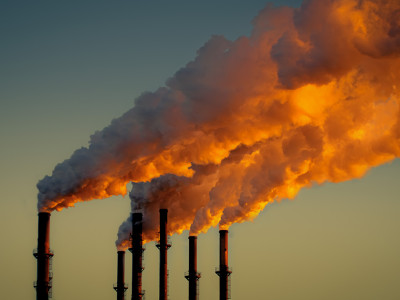Environmental Protection Agency
The Unreasonable Risk of TSCA Reform
Caught Between a Rock and a Hard Place
The Frank R. Lautenberg Chemical Safety for the 21st Century Act is no doubt generating significant conflict, including claims of undue industry influence, competing bills from prominent members of the same party, consternation among states, and divisions among health and environmental groups. And it may also be the closest we have gotten to TSCA reform—ever. …
Continue reading “The Unreasonable Risk of TSCA Reform”
CONTINUE READINGAccelerating Cost-Effective Green Stormwater Infrastructure: Learning from Local Implementation
A new Berkeley Law report
California decision makers focused on responding to the current drought might question whether stormwater deserves a slice of their attention right now. Although it might be tempting to relegate stormwater planning, management decisions, and infrastructure improvements to a back burner until drought concerns cool off, doing so would be counterproductive. Below, I explain why stormwater management is relevant …
CONTINUE READINGHow Scalia Might Have Ended the Best Hope of Killing EPA’s Greenhouse Gas Rules
The Supreme Court may have just eliminated a major legal and political risk to EPA’s greenhouse gas regulatory program
A couple of folks have already written about the UARG decision, and there is surely more to understand about the implications of the Scalia majority decision for future EPA greenhouse gas regulatory efforts. But I want to highlight one key implication of the decision for EPA’s overall greenhouse gas regulatory program. First, it is important …
Continue reading “How Scalia Might Have Ended the Best Hope of Killing EPA’s Greenhouse Gas Rules”
CONTINUE READINGBreaking News: U.S. Supreme Court Renders Split Decision in Major Climate Change Case
The U.S. Supreme Court today issued its long-awaited decision in Utility Air Regulatory Group v. Environmental Protection Agency, the justices’ third encounter with climate change law and policy. In a Solomonic ruling, the Court ruled that EPA lacks authority to require the operators of “stationary sources” of greenhouse gas emissions (power plants, factories, etc.) to obtain …
CONTINUE READINGGuest Blogger Kate Konschnik: EPA’s 111(d) Authority – Follow Homer and Avoid the Sirens
Kate Konschnik is the Director of Harvard Law School’s Environmental Policy Initiative. The views expressed in this blog post are her own. Thirty years ago, Chevron v. NRDC set the standard for judicial deference to an agency’s statutory interpretation. In that case, the Supreme Court upheld EPA’s interpretation of Clean Air Act language. This month, …
CONTINUE READINGPreviewing Next Week’s Climate Change Arguments in the U.S. Supreme Court
Big Stakes and Big Players in This Year’s Biggest Environmental Case
On Monday, the Supreme Court will hear oral arguments in the biggest environmental law case of its current Term, Utility Air Regulatory Group v. EPA. Legal Planet colleagues Ann Carlson and Dan Farber have already posted their thoughts on the case. Let me add mine. Utility Air Regulatory Group involves EPA’s authority to regulate stationary …
Continue reading “Previewing Next Week’s Climate Change Arguments in the U.S. Supreme Court”
CONTINUE READINGEPA and the social cost of carbon
This is Part I of a two-part series of posts discussing Eric Posner’s critiques of the role of cost-benefit analysis in climate regulation. The social cost of carbon (SCC, for policy wonks) represents the cost, in today’s dollars for the harm of emitting a ton of carbon dioxide equivalent gas into the atmosphere. Recently, the …
Continue reading “EPA and the social cost of carbon”
CONTINUE READINGLots of Rhetoric, Not Much New in Obama’s Climate Plan
The Obama Administration just released a “Climate Action Plan” to accompany the speech the President will give this morning at Georgetown University. I applaud the President for delivering a speech devoted exclusively to climate change. But for all the hooplah surrounding the President’s speech as “major,” the measures he’s proposed in the new plan to …
Continue reading “Lots of Rhetoric, Not Much New in Obama’s Climate Plan”
CONTINUE READINGThe Election Results and National Energy Policy
In trying to read the effect of the 2012 elections on national energy policy, there are at least five places to look: 1. Continuity at the Federal Energy Regulatory Commission One of the more dramatic changes that occurred during the first Obama term was a shift in the mission of the Federal Regulatory Commission. FERC …
Continue reading “The Election Results and National Energy Policy”
CONTINUE READINGDC Circuit’s Unanimous Decision to Uphold Greenhouse Gas Rules Across the Board Major Victory for EPA
As Dan just noted, the U.S. Court of Appeals for the D.C. Circuit — in a unanimous decision — handed the U.S. EPA a sweeping victory in upholding across the board four separate components of the agency’s rules to regulate greenhouse gas emissions. The opinion can be found here. A little background is in order …
CONTINUE READING





